|
Are you in Burnaby tired of relying solely on toilet paper for personal hygiene? You're not alone. Growing environmental and health concerns linked to toilet paper usage have prompted numerous individuals to contemplate transitioning to bidets. This article delves into the significance of selecting suitable bidet fixtures and explores their myriad benefits for enhanced personal hygiene. What Is A Bidet Fixture?A bidet fixture is a plumbing device commonly found in European and Asian countries designed for personal hygiene. Its purpose is to wash and clean the genital and anal areas after using the toilet. The fixture typically includes a spray nozzle or vertical jet of water that can be adjusted for pressure and temperature. When considering a bidet fixture, it is important to consider factors such as available space, plumbing requirements, features like water temperature control, and ease of installation. Why Should You Consider Using A Bidet Fixture?Bidet fixtures in Burnaby are becoming increasingly popular in modern bathrooms, and for good reason. Not only do they offer superior hygiene compared to traditional toilet paper, but they also provide cost savings and environmental benefits. This section will discuss why you should consider using a bidet fixture in your bathroom. From improved personal hygiene to reduced paper waste, there are numerous advantages to incorporating this fixture into your daily routine. Let's look at each benefit and see why a bidet fixture may be the right choice for you. Improved Hygiene
Cost Savings
Environmental Benefits
What Are The Different Types Of Bidet Fixtures?Regarding personal hygiene, the bidet has become an increasingly popular choice worldwide. However, with the variety of bidet fixtures available on the market, it can be overwhelming to determine which is right for you. This section will discuss the different types of bidet fixtures and their unique features. From the traditional standalone bidet, which dates back to 18th-century Italian royalty, to the modern bidet attachment and bidet toilet seat, we will explore the evolution of bidet fixtures and help you make an informed decision for your personal needs. Standalone Bidet
Bidet Attachment
When selecting a bidet attachment, it's important to prioritize compatibility with your existing toilet and take into account your preferences for any additional features. Adhering to the manufacturer's installation guidelines will help ensure your bidet attachment's proper function and durability. Bidet Toilet Seat
What Features Should You Look For In A Bidet Fixture?When it comes to choosing the right bidet fixture, there are several key features to consider. These features can greatly enhance your overall experience and provide a more comfortable and hygienic clean. This section will discuss the top five features to look for in a bidet fixture: adjustable water pressure and temperature control, customizable nozzle positioning, self-cleaning nozzle, air dryer, and heated seat. By understanding the benefits of each feature, you can make an informed decision and find the perfect bidet fixture for your needs. Water Pressure and Temperature Control
Nozzle Positioning
Self-Cleaning Nozzle
Air DryerWhen choosing a bidet fixture, consider the warm air dryer and deodorizing features for added comfort and freshness. Look for models with adjustable temperature and speed settings for the air dryer and effective deodorizing functions. Heated Seat
What Are The Factors To Consider When Choosing A Bidet Fixture?When choosing the right bidet fixture, there are several important factors to consider. These factors can greatly impact the installation process, functionality, and overall satisfaction with your bidet. This section will discuss the key considerations when selecting a bidet fixture. This includes compatibility with your current toilet, installation requirements, budget, brand reputation, and warranty. By understanding these factors, you can make an informed decision and find the perfect bidet fixture for your needs. Compatibility with Your Toilet
Installation Requirements
Budget
How To Properly Maintain And Clean Your Bidet Fixture?Bidet fixtures are a valuable addition to any bathroom, providing a more thorough and hygienic cleaning experience. However, to ensure the full benefits of a bidet, it is important to properly maintain and clean the fixture. This section will discuss the proper cleaning process and recommended cleaning solutions for maintaining proper hygiene. We will also touch on the importance of cleaning frequency for personal hygiene. Additionally, we will provide maintenance tips for keeping your bidet fixture in top condition, including caring for water supply lines and ensuring proper streams of water during use. Proper Cleaning Process
Fact: Proper maintenance and cleaning of bidet fixtures are essential for promoting hygiene and environmental benefits. Cleaning Frequency
A friend recently shared how using a bidet fixture positively impacted their hygiene. They found that the cleaning frequency and improved hygiene brought a sense of freshness and comfort to their daily routine. Maintenance Tips
Revamp Your Bathroom Experience with New West Plumbing!Seeking expert guidance on bidet selection or any plumbing queries? Contact New West Plumbing in Burnaby, BC, at 604-256-5590 for a complimentary quote. Benefit from our team's expertise in recommending and installing ideal bidet fixtures, ensuring a revitalizing and environmentally conscious bathroom upgrade. FAQs about How To Choose The Right Bidet FixturesHow do I choose the right bidet fixtures for my bathroom?There are a few factors to consider when choosing the right bidet fixtures, such as the size and layout of your bathroom, your budget, and your personal preferences. Some popular options include bidet toilet seats, bidet attachments, and handheld bidet sprayers. Can I install a bidet seat on my existing toilet?Yes, most bidet seats are designed to fit on top of your existing toilet seat and can be easily installed without needing professional installation. Just make sure to check the compatibility of the bidet seat with your toilet model before purchasing. What are some fancy features that I should look for in a bidet?Some bidet models come with extra features such as heated seats, adjustable water temperature, and air dryers. While these features may enhance your bidet experience, they are unnecessary and may come with a higher price tag. It ultimately depends on your personal preferences and budget. Are there any bidet options for those who frequently travel?Yes, portable bidets and handheld bidet sprayers are perfect for people on the go. These bidets are compact and easy to use, but they may require manual refilling of water and may not be as powerful as built-in bidets. Do bidets require professional installation?Most bidet fixtures, such as bidet toilet seats and bidet attachments, do not require professional installation and can be easily installed by following the manufacturer's instructions. However, built-in bidets may require professional plumbing and electrical work. Are bidets more environmentally friendly than toilet paper?Yes, bidets use significantly less water compared to the production and disposal of toilet paper. They also provide a more thorough and hygienic cleaning than toilet paper. Using a bidet can help reduce your carbon footprint and promote sustainability. Are you in Burnaby and tired of grappling with high energy bills? Want to diminish your carbon footprint? An energy-efficient water heater could be the solution to achieving both objectives. This article delves into the significance of energy-efficient water heaters and their substantial benefits. Get prepared to save money and contribute positively to the environment! What Is an Energy-Efficient Water Heater?An energy-efficient water heater is a sustainable choice for households as it is designed to consume less energy. Using advanced technology, these water heaters can conserve energy and reduce utility costs. Various types are available, such as heat pumps, condensing, and solar water heaters, each offering different levels of energy efficiency. In fact, in 2009, the government in California initiated a program to encourage homeowners to switch to energy-efficient appliances, resulting in significant energy conservation. This is a true story of the benefits of choosing a sustainable option. How Does an Energy-Efficient Water Heater Work?An energy-efficient water heater operates through the following steps:
It's critical to insulate hot water pipes, adjust the thermostat to the proper temperature, and perform routine maintenance on the heater to guarantee optimal energy efficiency. What Are the Benefits of an Energy-Efficient Water Heater?Are you thinking about switching to a more energy-efficient kind of water heater? Look no further—all the information you require is right here. This section will cover the advantages of an energy-efficient water heater—such as lower energy costs, a smaller carbon footprint, a longer lifespan, and a reliable hot water supply. By the end, you'll realize why an energy-efficient water heater is economical and environmentally friendly. Lower Energy Bills
Pro-tip: Consider installing a timer to schedule the water heater's operation, optimizing energy savings. Reduced Carbon Footprint
Longer Lifespan
Consistent Hot Water Supply
What Are the Different Types of Energy Efficient Water Heaters?Our water heaters are frequently the most energy-wasters in our homes. However, an increasing number of individuals are switching to energy-efficient water heaters as the emphasis on affordability and sustainability grows. The various energy-efficient water heaters on the market, such as heat pump, condensing, solar, and tankless models, will all be discussed in this section. Let's explore and identify your house's ideal type as each has special advantages and features. Tankless Water HeatersWhen considering tankless water heaters, it's important to evaluate various factors. If natural gas is unavailable, opt for electric models or heat pump water heaters for increased energy efficiency. For optimal energy savings, look for Energy Star-certified options. Solar Water HeatersSolar water heaters utilize the sun's heat to provide hot water. A solar collector panel absorbs the sun's energy, heating a fluid to transfer the heat to the water. This system is most effective in regions with ample sunlight, offering reduced energy bills and environmental impact. For optimal performance, install the solar collector panel in a location with unobstructed sunlight exposure throughout the day. Consider climate and local regulations when choosing solar water heaters, ensuring feasibility and compliance. Heat Pump Water HeatersHeat pump water heaters, including the hybrid electric heat pump, utilize surrounding air to warm water, resulting in a potential 50% reduction in electricity costs. These units extract heat from the air and transfer it to the water, making them exceptionally energy-efficient. When contemplating a heat pump water heater, it is important to consider the size, cost of electricity, and potential energy savings to determine the payback period. Condensing Water Heaters
What Factors Need to Be Considered When Selecting an Energy-Saving Water Heater?When selecting a new water heater, energy efficiency is frequently a top concern for homeowners. Determining which water heater would be the most economical and efficient for your home can be difficult, given the range of options available. This section will examine the most important variables to consider when selecting an energy-efficient water heater. These variables include fuel type, capacity and size, energy efficiency ratings, cost, and payback time. You can choose the ideal water heater for your house by being aware of the following factors. Fuel Type
Size and Capacity
Pro-tip: When choosing the size and capacity of an energy-efficient water heater, always consider future growth in water usage to avoid frequent replacements. Energy Efficiency Ratings
Cost and Payback Period
Energy-efficient water heaters may even qualify for tax credits and local rebates, further lowering the overall cost. How Can You Maintain an Energy Efficient Water Heater?Regular maintenance and inspections are key to ensure that your water heater remains energy efficient. This section will discuss the importance of scheduling regular inspections for new and old water heaters. We will also cover the main maintenance tasks that should be performed to keep your water heater running efficiently. By following these tips, you can prolong the lifespan of your water heater and save money on energy costs. Regular Inspections and Maintenance
Upgrade to Efficiency with New West PlumbingContact New West Plumbing in Burnaby, BC, at 604-256-5590 for expert advice on energy-efficient water heaters or plumbing needs. Let us help you choose and install efficient systems prioritizing savings and environmental sustainability – get your free quote today! As we age, everyday tasks like using the bathroom in Burnaby can present challenges. For the elderly, this space can become a source of frustration and even a risk of injury. In this article, we delve into strategies for crafting age-friendly bathroom designs. We aim to enhance safety and foster independence, offering insights catering to you or your loved ones' needs. Why Is Bathroom Design Important for the Elderly?Bathroom design is extremely important for the elderly due to safety and accessibility concerns. It is crucial to have a well-designed bathroom to prevent accidents and promote independence for seniors. Features such as grab bars, non-slip flooring, walk-in showers, and raised toilets are essential to accommodate their mobility challenges. Additionally, good lighting and easily accessible storage contribute to creating a user-friendly environment. When designing a bathroom for the elderly, it is important to consider installing walk-in tubs, lever faucets, and handheld showers. Non-slip bath mats and shower benches are valuable additions that greatly enhance their bathroom experience. What Are the Key Considerations for Bathroom Design for the Elderly?When it comes to designing a bathroom for the elderly, several important factors need to be taken into consideration. This section will explore the key considerations for creating a functional and safe bathroom for seniors. From accessibility and safety features to comfort and convenience and even adaptability for future needs, each aspect plays a crucial role in ensuring a comfortable and accommodating bathroom experience for the elderly. Accessibility and Safety
Comfort and ConvenienceWhen creating a bathroom for the elderly, prioritizing comfort and convenience is crucial. It is important to include features such as:
For added convenience, consider incorporating:
Affordable solutions like putting up grab bars and utilizing non-slip mats should also be considered to guarantee comfort and safety. Adaptability and Future NeedsWhen considering adaptability and future needs for an elderly-friendly bathroom design, follow these steps:
For a thoughtful and forward-thinking approach, prioritize adaptability and potential future requirements when planning an elderly-friendly bathroom. What Are Some Specific Features to Include in an Elderly-Friendly Bathroom?Certain tasks that were once easy can become more challenging as we age. This is especially true in the bathroom, where slips and falls can seriously concern the elderly. This section will discuss specific features that can be incorporated into an elderly-friendly bathroom to increase safety and accessibility. From grab bars and non-slip flooring to walk-in showers and elevated toilets, these additions can greatly improve the daily routine of an elderly individual. Additionally, lever-style faucets offer easier use for those with limited mobility or trouble bending. Let's look at these critical features that can make a bathroom safer for the elderly. Grab Bars and Handrails
Pro-tip: Regularly check and tighten the grab bars to ensure they remain securely in place. Non-Slip Flooring
Walk-in Showers or Bathtubs
When designing an elderly-friendly bathroom, prioritize safety, convenience, and accessibility. Incorporating features like walk-in showers or tubs in the bathing area can greatly enhance the bathing experience for seniors with mobility issues. Elevated Toilets
Did you know? Elevated toilets can significantly improve accessibility for the elderly and individuals with reduced muscle tone and mobility challenges. Lever-Style Faucets
What Are Some Design Tips for an Elderly-Friendly Bathroom?When designing a bathroom for the elderly, it is important to prioritize safety, accessibility, and comfort. This section will discuss some key design tips to consider when creating an elderly-friendly bathroom. From keeping the layout simple and clutter-free to choosing the right fixtures and lighting, these tips will help ensure a functional and comfortable bathroom for the elderly. Let's dive in and explore the elements that make a bathroom safe and convenient for older individuals. Keep the Layout Simple and Open
Use Contrasting Colors and Textures for Visibility
Consider Installing a Shower Seat
Opt for Easy-to-Use Fixtures and Hardware
Add Adequate Lighting
Design Safer Bathrooms with New West Plumbing!Transform Your Bathroom for Safety. Call New West Plumbing in Burnaby, BC, at 604-256-5590. Let's craft a secure haven for the elderly together – get a free quote today. FAQs about Bathroom Designs For the ElderlyWhat are some important factors when designing a bathroom for the elderly?When designing a bathroom for the elderly, it is crucial to consider factors such as accessibility, anti-skid flooring, toilet seat height, grab bars, clutter-free space, low maintenance, and proper lighting. How can anti-skid flooring help prevent bathroom accidents among older adults?Anti-skid flooring can significantly reduce the risk of bathroom accidents among older adults by providing a non-slip surface, making it easier for them to move around safely. Options like epoxy, ceramic, rubberized floors, and cementitious boards offer excellent anti-skid surfaces. What are some essential installations to make a bathroom senior-friendly?Grab bars, handheld shower heads, non-slip mats, and safety rails are crucial in making a bathroom senior-friendly. These provide support and stability for older adults, especially those with lost mobility or who use a wheelchair. How can proper lighting make a bathroom safe for the elderly?Proper lighting is essential in making a bathroom safe for older people as it prevents shadows and ensures all areas are well-lit. It is recommended to have multiple lights installed to provide adequate lighting for nighttime use. Can HomeLane help with designing a senior-friendly bathroom?HomeLane is an end-to-end home interior brand offering expert advice and 3D visualization to help homeowners design personalized and affordable senior-friendly bathrooms. The brand also ensures a predictable and pocket-friendly renovation process. What are some features to look for in a senior-friendly walk-in tub?A senior-friendly walk-in tub should have a low step-in height, a non-slip surface, a hand shower, two grab bars for support, and a comfortable seat. These features make it easier for older adults to use and reduce the risk of accidents. Are you struggling with recurring plumbing issues in your home or commercial property in Burnaby? You're not alone. Root intrusion is a common problem that can cause major damage to your pipes, leading to expensive repairs. In this article, we'll explore seven telltale signs of root intrusion that you should be aware of. Protect your pipes and save yourself from costly repairs by learning how to identify and deal with root intrusion. What Is Root Intrusion?Root intrusion refers to the invasion of roots from trees, shrubs, or plants into underground sewer lines or drainage pipes. This can lead to blockages, leaks, and damage to the pipes, resulting in sewer backups and potential health hazards. Knowing what root intrusion is can assist property owners in identifying and addressing this issue promptly, preventing expensive repairs, and maintaining a healthy plumbing system. What Causes Root Intrusion?Root intrusion occurs when tree or shrub roots invade and clog drainage pipes, causing sewer backups and pipe damage. Factors contributing to this issue include the proximity of trees to pipes, small cracks in the pipes, moisture, and the presence of nutrients in the pipes. Fact: In some cases, tree roots can penetrate pipes as small as 0.06 inches in diameter. How Can You Tell If You Have Root Intrusion?Root intrusion in sewer lines can cause a multitude of problems for homeowners. But how can you tell if you're dealing with this issue? In this section, we will discuss the seven key signs that indicate you may have root intrusion in your pipes. From slow draining and clogged pipes to sewage backup and excessive tree root growth, we will break down each sign and explain how it relates to root intrusion. By recognizing these signs, you can take action to address the issue before it causes major plumbing problems. 1. Slow Draining or Clogged Pipes
2. Unpleasant OdorsUnpleasant odors in your home could indicate root intrusion in your plumbing system. These strange smells may resemble a sewage smell or a rotten egg-like odor, signaling potential root growth in your pipes or drain. Instead of using liquid drain cleaners, which may not effectively eliminate the root intrusion problem, consider alternative solutions. 3. Gurgling Noises in Drains
4. Sinkholes or Depressions in Yard
5. Cracked or Damaged Pipes
6. Excessive Tree Growth Near Pipes
7. Sewage Backup
What Are The Risks Of Root Intrusion?Root and tree intrusion can pose several risks to your property, such as damaging underground pipes, causing potential water leaks, and compromising structural stability. In addition, if sewage lines are affected, it can result in expensive repairs, landscaping problems, and even health hazards. Surprisingly, tree roots can extend up to two to three times the width of the tree's canopy, meaning that even trees located far from your property can still pose a threat of root intrusion. What Are The Solutions For Root Intrusion?Root intrusion can cause serious damage to your plumbing system and lead to costly repairs. Luckily, there are solutions available to combat this issue. In this section, we will discuss three effective methods for dealing with root intrusion: hydrojetting, pipe relining, and pipe replacement. Each method offers a unique approach to removing roots from your pipes and restoring the functionality of your plumbing system. Let's explore these solutions in more detail and determine which one may be the best fit for your specific situation. Hydro Jetting
Pro-tip: Schedule regular hydrojetting sessions to prevent root intrusion and maintain the flow of a healthy plumbing system. Pipe Relining
Pipe Replacement
Fact: On average, root intrusion accounts for 50% of all sewer line blockages in the United States. Resolve Root Intrusions with New West Plumbing!For professional assistance in addressing root intrusion issues or any plumbing concerns, contact New West Plumbing in Burnaby, BC, at 604-256-5590 for a free quote. Our skilled team specializes in diagnosing and resolving root intrusion problems efficiently, ensuring the integrity and reliability of your plumbing system. FAQs about 7 Signs You Dealing With Root IntrusionWhat is root intrusion, and how does it affect my plumbing system?Root intrusion occurs when tree or shrub roots grow around or into your sewer lines, attracted by the moisture in your sewer system. This can cause blockages, back-ups, and even pipe damage. How can I tell if I have root intrusion in my plumbing system?There are several signs to look out for, including strange smells, frequent clogs, back-ups, increased rodent or insect activity, and pooling water in your yard. If you notice any of these, it's important to call a plumber for a video camera inspection. Can root intrusion damage my cast iron pipes?Yes, root intrusion can cause significant damage to older piping materials like cast iron. The roots can grow through small cracks and gaps in the pipes, causing leaks and blockages. Is there a way to prevent root intrusion in my main sewer line?Yes, there are preventative measures you can take, such as using copper sulfate or other root-killing products, installing physical barriers around sewer lines, and regularly maintaining your pipes. However, if root intrusion has already occurred, it's best to call a plumber for comprehensive solutions. How can a plumber detect root intrusion in my sewer system?With video camera plumbing inspections, plumbers can see deep within your sewer lines and identify any root intrusion. This allows them to accurately diagnose the issue and provide the best solutions for root removal and other sewer pipe repairs. Can I fix root intrusion on my own?It is not recommended to try and fix root intrusion on your own. This requires specialized equipment and knowledge to remove the roots properly without causing further damage to your piping. It's best to leave it to a professional plumber who has experience dealing with root intrusion. Are you in Burnaby and seeking ways to save water and reduce expenses? If so, continue reading to explore the advantages of utilizing a low-flow showerhead. With mounting worries about water scarcity and escalating utility expenses, seeking efficient solutions for daily activities becomes essential. This article focuses on a simple yet effective solution that you can readily incorporate into your daily routine. What Is Low Flow Shower Head?A low-flow showerhead is a water-efficient fixture that reduces water usage without compromising the shower experience. It restricts water flow to approximately 2.5 gallons per minute or less, helping conserve water and energy. Low-flow showerheads were first introduced in the 1970s in response to water shortages. They gained popularity due to their environmental benefits and are now widely used to promote water conservation. How Does a Low-Flow Shower Head Work?
When choosing a low-flow shower head, seek options with adjustable settings to personalize your shower experience and support water conservation efforts. What Are the Benefits of Using a Low-Flow Shower Head?When it comes to showering, most of us don't think twice about how much water we use. However, with the increasing focus on water conservation and the rising cost of water utility bills, it's important to consider the benefits of using a low-flow shower head. Not only does it reduce our water consumption and save us money on our water bills, but it also helps conserve natural resources and reduce energy usage. In this section, we'll explore the various benefits of using a low-flow shower head, from saving water and money to promoting environmental protection and energy efficiency. Reduces Water Consumption
Consider replacing your current shower head with a low-flow model to save on your water bill. This water-efficient option can save hundreds of gallons of water annually and contribute to water conservation efforts. Saves Money on Water Bills
Helps Conserve Natural Resources
Reduces Energy Usage
How do you choose the right low-flow shower head for your bathroom?Choosing the right low-flow shower head for your bathroom can significantly impact your water usage and overall shower experience. But with so many options on the market, it can be overwhelming to know where to start. In this section, we will discuss the key factors to consider when selecting a low-flow shower head, including the flow rate, water pressure, WaterSense certification, adjustable settings, and aesthetic design. By the end, you will better understand how to choose a showerhead that meets your specific needs and preferences. Consider the Flow Rate
When selecting a low-flow shower head, it's crucial to consider the flow rate, as it directly impacts water pressure and usage. Look for a balanced flow rate to ensure efficient water conservation without compromising your shower experience. Look for WaterSense Certification
Check for Adjustable Settings
Consider the Aesthetic Design
Despite the common belief that low-flow shower heads are a recent innovation, the concept dates back to ancient Greek and Roman civilizations. Evidence suggests that public bathhouses in these societies utilized early versions of low-flow shower heads to conserve water while providing bathing facilities for large populations. How to Install a Low-Flow Shower Head?
Are There Any Disadvantages to Using a Low-Flow Shower Head?While low-flow shower heads are known for their water-saving benefits, it's important to consider if there are any potential disadvantages to using them. This section will discuss three potential drawbacks of using a low-flow shower head and how they may affect your shower habits and water conservation efforts. These include the possibility of taking longer to rinse off soap, not being suitable for high water pressure, and requiring more frequent cleaning. Let's explore these potential downsides and how they can be managed for a more energy-efficient shower experience. May Take Longer to Rinse Off Soap
May Not Be Suitable for High Water Pressure
May Require More Frequent Cleaning
Upgrade to Low-Flow Showerheads with New West Plumbing!For professional guidance on installing eco-friendly fixtures or any plumbing needs, contact New West Plumbing in Burnaby, BC, at 604-256-5590 for a free quote. Our team specializes in providing solutions that promote water conservation and efficiency for your household. FAQs about What Are The Benefits Of Using A Low-Flow Shower Head?What is a low-flow shower head, and how can it benefit me?A low-flow shower head is designed to reduce the amount of water wasted while showering, making your home more water-efficient. This can lead to cost savings on your water and heating bills. How does using a low-flow showerhead save me money?By reducing water usage, low-flow shower heads can lower your water heating costs, typically the second-largest energy expense for the average home. Additionally, using an energy-efficient dishwasher and washing laundry in cold water can result in further savings. Are there any other benefits to using a low-flow showerhead?Yes, using a low-flow shower head can also contribute to water conservation efforts, especially in drought-prone areas. It can also help reduce strain on the water supply and benefit future generations. Are you tired of dealing with frozen outdoor pipes inBurnabyduring the Winter? Then this article is for you. With temperatures dropping, it's essential to ensure your outdoor plumbing is properly insulated to prevent costly damage. Don't let burst pipes ruin your Winter; learn why insulation is crucial in this article. What Is Pipe Insulation?Pipe insulation is a protective covering wrapped around pipes to provide various benefits. It prevents heat loss, reduces energy costs, and prevents pipes from freezing in cold weather. Additionally, it aids in preventing hotwater pipes and reducing the risk of condensation on cold water pipes. Commonly used insulation materials, such as foam, polyethylene, or fiberglass, provide thermal resistance and protect the pipes from extreme temperatures. Why Is It Important to Insulate Outdoor Pipes?Insulating outdoor pipes is a tedious and unnecessary task. However, the benefits of doing so far outweigh the effort it takes. This section will discuss why insulating outdoor pipes is crucial for their longevity and overall functionality. From preventing freezing and bursting to saving energy and money, we will explore the various advantages of insulating outdoor pipes. Additionally, we will touch on how insulation can protect against corrosion and reduce noise levels, making it a worthwhile investment for any homeowner. Prevents Freezing and Bursting
Pro-tip: To effectively insulate water pipes and prevent freezing and bursting, ensure there are no insulation gaps when insulating outdoor pipes. Saves Energy and Money
Pro-tip: Regularly inspect and maintain your pipe insulation to ensure its effectiveness and prolong cost savings. Doing so can save energy and money in the long run. Protects Against Corrosion
Pro-tip: To effectively protect against corrosion, consider implementing cathodic protection systems, especially in harsh environmental conditions. Reduces NoiseInsulating outdoor pipes also helps to reduce noise by dampening the sounds created by water flowing through the pipes. This is especially advantageous in areas where peace and quiet are highly valued, such as residential neighborhoods or outdoor recreational spaces. How Do You Insulate Outdoor Pipes?When temperatures drop, protecting your outdoor pipes from freezing is important. One effective method is insulation, which helps to maintain heat and prevent water from freezing inside the pipes. But how exactly do you insulate outdoor pipes? This section will walk you through the step-by-step process of insulating your outdoor pipes. From measuring and cutting the insulation to securing it, we'll cover all the necessary steps to ensure your pipes stay protected during cold weather. Measure and Cut Insulation
Clean and Dry Pipes
After cleaning and drying the pipes, it is crucial to carefully inspect for any damages or leaks before proceeding with the insulation process. Be sure to wear protective gear and work in well-ventilated areas. Wrap Insulation Around Pipes
Secure with Tape or Wire
Cover with Protective Material
What Materials Can Be Used for Pipe Insulation?When it comes to insulating your outdoor pipes, a variety of materials can be used for effective protection against freezing temperatures. Each material has its own unique properties and advantages. In this section, we will discuss five common materials that are used for pipe insulation: fiberglass, foam rubber, polyethylene, reflective foil, and pre-slit tubular foam sleeves. You can choose the best material for your specific needs and budget by understanding the different options available. Fiberglass
Foam RubberFoam rubber is widely used for pipe insulation because of its flexibility, durability, and moisture resistance. It effectively provides thermal insulation, effectively preventing heat loss and condensation buildup. Fun Fact: Foam rubber insulation is also popular for HVAC systems as it helps improve energy efficiency and reduce noise levels. PolyethylenePolyethylene is a top pick for pipe insulation due to its strong and flexible nature and ability to resist moisture. It is often used in colder climates to protect exposed outdoor pipes from freezing and bursting. The installation process for polyethylene insulation is simple, as it is a flexible foam that can be easily wrapped around pipes and secured with tape. Additionally, this material is affordable and readily accessible, making it a practical choice for insulating outdoor pipes. Reflective FoilReflective foil is commonly used for insulating pipes to reduce heat loss. It is designed to reflect radiant heat, making it a great option for insulating outdoor water pipes and pipes in warmer climates. Installing the foil is simple and provides extra protection against temperature changes. When insulating outdoor pipes in areas with high sun exposure, reflective foil is an effective solution for maintaining consistent temperatures. It is important to accurately measure and securely seal the material to the exterior wall to maximize its heat-reflecting capabilities to achieve the best results with reflective foil insulation. Pre-slit Tubular Sleeves
Consider using pre-slit tubular sleeves for an easier and quicker pipe insulation process. These sleeves are convenient and efficient for insulating outdoor pipes, especially in colder climates. Ensure Pipe Protection with New West PlumbingTo secure expert help insulating outdoor pipes or for any plumbing needs, contactNew West Plumbing in Burnaby, BC, at 604-256-5590. Our skilled team offers a free quote and adept guidance on efficient insulation techniques, ensuring your outdoor pipes withstand harsh weather conditions effortlessly. FAQs about Why You Should Insulate Outdoor PipesWhat is outdoor water pipe insulation, and why should I consider it?Outdoor water pipe insulation involves covering your pipes with materials to protect them from the elements. It helps prevent issues likefrozen pipes, leading to costly damages and flooding problems. Investing in insulation can protect your plumbing system and save money in the long run. Can I insulate my outdoor hot water pipes to save energy?Insulating hot and water heater pipes can help prevent unnecessary heat loss and save energy. This can also lead to cost savings on your energy bills. However, choosing the right materials and properly installing them is important to ensure maximum efficiency. What is the best way to insulate long, straight outdoor pipes?The most common and easy solution is to use foam pipe sleeves for longer and straighter pipes. These sleeves come in different sizes and small lengths and can be easily installed by sliding them onto the pipes. Be sure to seal any gaps with adhesive or duct tape for maximum insulation. How do I insulate shorter outdoor pipes?For shorter pipes, pipe-wrap insulation is a suitable method. This involves wrapping materials, such as foam with rubber backing tape or rubber pipe insulation tape, to wrap around the pipes. Cover the entire bubble film pipe wrap and secure the ends to prevent air gaps. Do I need to take extra precautions to protect my outdoor faucets?Yes, protecting your outdoor faucets from the cold weather is important. You can use faucet protector covers, usually available at local hardware stores or online. These covers protect against falling debris and can easily be installed by attaching them to your outdoor faucet and tightening them to prevent air gaps. Welcome to our comprehensive guide on pressure-reducing valves (PRVs). In this article, we delve into the functionality and importance of these vital components in water systems. Pressure-reducing valves play a crucial role in maintaining optimal water pressure levels, preventing damage to pipes, appliances, and fixtures caused by high pressure. Whether in residential or industrial settings, understanding PRVs is fundamental to ensuring a smooth and reliable water supply. Situated in Burnaby, BC, this guide aims to shed light on the significance of pressure-reducing valves and why they are essential in your plumbing system. Join us as we explore their operation, benefits, and applications, brought to you by New West Plumbing. Understanding Pressure Reducing Valves and Their FunctionHow Pressure Reducing Valves OperatePressure Reducing Valves (PRVs) function by maintaining a consistent downstream pressure, regulating the flow of water or fluid. They achieve this by automatically adjusting the pressure regulator or valve opening based on the pressure level of the incoming fluid. When the pressure exceeds the set limit, the valve restricts the flow, reducing the pressure to the desired level. This mechanism helps prevent damage to pipes, fixtures, and appliances due to high pressure. Significance of Pressure Adjustment SettingsThe adjustment settings in PRVs are crucial as they determine the downstream pressure. By accurately setting the PRV, it ensures the water or fluid maintains an optimal pressure level, preventing system failures. The ability to customize these settings ensures compatibility with specific appliances, ensuring they operate efficiently while extending their lifespan. Importance of Pressure Adjustment in Valves for Water SystemsPrecision in Pressure AdjustmentThe precision of pressure adjustment settings directly impacts the efficiency of a water system. An accurate pressure adjustment setting ensures that the downstream pressure remains within the recommended range for different applications, such as irrigation, household use, or industrial machinery. This precision prevents overpressure situations, safeguarding the system from potential leaks or ruptures. Impact on Water System LongevityProper pressure adjustment in valves significantly contributes to the longevity of a water system. By maintaining an ideal pressure level, the system experiences reduced wear and tear on pipes and fittings, ultimately minimizing the risk of breakdowns or costly repairs. Consistent pressure adjustment is vital to ensure the sustainable operation of the entire water infrastructure. Exploring the Operation and Benefits of Pressure-Reducing ValvesFunctionality of Pressure Reducing ValvesPRVs are designed to operate autonomously, adjusting the flow of water based on the preset pressure limit. They contain an internal mechanism that modulates the valve opening in response to changes in incoming pressure. This functionality ensures a constant and controlled downstream pressure, promoting system stability and reliability. Benefits of Pressure ReductionThe benefits of utilizing PRVs extend beyond pressure control. They include preventing water hammer, a phenomenon caused by sudden pressure changes, conserving water by reducing wastage, extending the lifespan of appliances and fixtures by maintaining optimal pressure levels and ensuring a consistent supply of water for diverse household and industrial applications. The Role of Pressure Regulators in Maintaining Water System StabilityMechanism of Pressure RegulatorsPressure regulators utilize a diaphragm and spring-loaded mechanism to regulate water pressure. As the pressure fluctuates, the diaphragm adjusts the opening of the valve, controlling the flow to maintain the desired downstream pressure. This mechanism ensures that the system receives a consistent and appropriate pressure level. Ensuring System Efficiency and LongevityPressure regulators play a critical role in preserving the overall efficiency and longevity of water systems. By controlling the pressure, they prevent excessive strain on pipes and appliances, reducing the risk of leaks or damage. This contributes significantly to the sustainability and reliability of the water infrastructure. Factors Influencing Pressure Adjustment Settings in ValvesInfluential Factors on Pressure AdjustmentSeveral factors influence the optimal pressure adjustment settings in valves, including the type of fluid or water being regulated, the intended use or application, and the specific requirements of the connected systems or appliances. Temperature variations, flow rates, and environmental conditions also impact the ideal pressure settings. Adapting Pressure Adjustment SettingsThe ability to adapt pressure adjustment settings ensures compatibility with varying operational demands. For instance, in industrial or commercial applications, the pressure requirements might differ for different machinery or processes. Adaptable settings enable the valve to cater to these diverse needs, ensuring efficient operation across different scenarios. Installation and Utilization of Pressure Reducing Valves in Residential and Industrial SettingsResidential Installation of Pressure Reducing ValvesIn residential settings, pressure-reducing valves are typically installed at the point of entry for the incoming water supply. This ensures that the water distributed throughout the household remains at a safe and consistent pressure. Properly installed PRVs safeguard appliances, plumbing fixtures, and pipelines from potential damage due to high pressure. Industrial Use and ApplicationsIn industrial settings, pressure reducing valves are essential components of complex systems. They are employed across various industries such as manufacturing, oil and gas, and pharmaceuticals. PRVs in these settings ensure the precise control of pressures in different stages of production, protecting machinery and ensuring the quality of the final products. Reliable Water Pressure Control: The Significance of Pilot and Needle ValvesRole of Pilot ValvesPilot valves play a critical role in controlling the larger main valve of a pressure reducing valve. They work in conjunction with the main valve to maintain accurate pressure control. By sensing downstream pressure changes and adjusting accordingly, pilot valves ensure that the main valve responds promptly to maintain the desired pressure level. Importance of Needle ValvesNeedle valves are often utilized in pressure control applications requiring precise adjustments. Their fine-threaded, needle-like plunger enables gradual control over flow rates, facilitating accurate pressure regulation. Needle valves are particularly crucial in situations where minute adjustments are necessary, ensuring precise pressure control in delicate systems. Establishing the Importance of Pressure Reducing Valves in Industrial and Institutional ApplicationsIndustrial Applications and Pressure ControlIn industrial settings, precise pressure control is fundamental for numerous processes. Pressure-reducing valves maintain the required pressure levels for machinery, ensuring optimal performance and minimizing the risk of damage due to high pressures. These valves contribute significantly to the efficiency and safety of industrial operations. Institutional Use for Water Pressure ManagementIn institutions like hospitals, universities, or large office buildings, pressure-reducing valves play a crucial role in managing water pressure. They ensure consistent and safe water flow throughout the premises, preserving the integrity of plumbing systems and protecting sensitive equipment from potential damage caused by excessive pressure. Contact Us For Expert Plumbing Solutions in BurnabyPressure-reducing valves are indispensable components that contribute to the efficient functioning and longevity of water systems. Their ability to regulate and maintain optimal pressure levels ensures a steady and safe water flow, protecting plumbing infrastructure from potential damage. Whether for residential or industrial purposes, the significance of pressure-reducing valves cannot be overstated. At New West Plumbing in Burnaby, BC, we recognize the importance of these valves in ensuring the reliability and sustainability of your water systems. Contact us at 604-256-5590 for expert advice and a free quote. Are you concerned about the safety and cleanliness of your household water supply in Burnaby? If so, it's important to understand backflow's potential dangers and prevention's importance. In this article, we will delve into the role of backflow prevention in keeping your home's water supply free from contamination and safe for you and your family. What Is Backflow Prevention?Backflow prevention is crucial to maintaining a safe and healthy home in Burnaby. It involves using backflow preventers, which are devices designed to prevent contaminated water from flowing back into the city's water supply system. In this section, we will discuss the basics of backflow prevention, including the concept of cross-connection and how a backflow preventer works to prevent backflow. Additionally, we will explore the importance of backflow prevention and the potential consequences of not having a backflow preventer installed in your home. Why Is Backflow Prevention Important?Backflow prevention is essential in protecting drinking water from contamination. Backflow, which occurs when water flows in the opposite direction, can lead to pollutants entering the city's water supply system. It is critical to install a mechanical backflow preventer, maintain plumbing regularly, and be cautious of water usage to prevent backflow. These measures not only safeguard the drinking water and prevent contamination of the plumbing system but also save money on expensive repairs. How Does Backflow Occur?Backflow occurs when an unwanted reverse water flow is in your home's plumbing system. This can happen when the water pressure in your home becomes higher than the pressure in the city's water distribution system, causing water to flow back into your potable water system. A backflow preventer is installed at your water meter to prevent this. In this section, we will discuss the various causes of backflow, such as back pressure, air gap, and cross-connections, and how private water systems and local pressure events can contribute to this issue. What Are the Causes of Backflow?Various factors, including back pressure, cross connections, and local pressure events, can cause backflow in plumbing systems. Elevated piping or the lack of air gaps in private water systems can also contribute to backflow. To avoid this issue, you must install backflow prevention devices, perform routine plumbing system maintenance, and be mindful of water usage. For optimal backflow prevention, it is recommended to consult local regulations and implement cross-connection control programs to protect drinking water and avoid expensive plumbing contamination. What Are the Signs of Backflow?Backflow prevention is an essential aspect of maintaining a safe and healthy home in Burnaby. However, many homeowners may not be aware of the signs of backflow and its potential effects. In this section, we will discuss how to determine if you have backflow in your home, including the importance of backflow devices and regular testing. We will also examine the potential consequences of backflow, such as contaminated water and health risks, and why it is crucial to have a backflow prevention program in place. How Can You Tell If You Have Backflow?
What Are the Effects of Backflow on Your Home?Backflow in your home can have severe effects, such as the risk of contaminated water leading to potential health hazards. It can result in bacterial infections, gastrointestinal illnesses, and even lead poisoning if metals leach into the water supply. These effects emphasize the critical need for backflow prevention measures to safeguard your home and family. Fact: According to the EPA, backflow incidents can introduce harmful contaminants into drinking water, posing serious health risks to consumers. How Can You Prevent Backflow in Your Home?Backflow is a serious issue that can potentially contaminate your home's water supply. As a homeowner in Burnaby, it is crucial to understand how backflow can occur and how to prevent it. In this section, we will discuss three key ways to prevent backflow in your home. Firstly, we will explore the importance of installing a backflow prevention device, such as a reduced pressure principle assembly or a pressure vacuum breaker. Secondly, we will highlight the significance of regular inspections and maintenance of your plumbing system to ensure it is functioning properly. Lastly, we will touch on the importance of being mindful of your water usage to prevent backflow, especially in cases of a nearby fire or private system forcing. By taking these preventative measures, you can protect your home and family from the severe hazards of backflow. Install a Backflow Prevention Device
When installing an atmospheric vacuum breaker or other backflow prevention device, consider the specific needs of your plumbing system and consult with a professional for the best solution. Regularly Inspect and Maintain Your Plumbing System
Be Mindful of Your Water Usage
What Are the Benefits of Backflow Prevention?Backflow prevention is an essential aspect of maintaining a safe and clean water supply in your home. By understanding the benefits of backflow prevention, you can ensure that your family has access to clean, uncontaminated water. In this section, we will discuss the importance of backflow prevention and how it protects your drinking water. We will also explore how it prevents the contamination of your plumbing system from reverse flow and potentially hazardous sources, such as the municipal water supply. Lastly, we will touch on how backflow preventers can save you money by preventing costly repairs to your plumbing system with the help of trusted professionals like Cregger Plumbing, Heating & Cooling. Protects Your Drinking Water
Prevents Contamination of Your Plumbing System
Saves You Money on Costly Repairs
Considering these steps will help you save money on costly repairs and maintain the integrity of your plumbing system. What Are the Regulations for Backflow Prevention in Burnaby?In Burnaby, the regulations for backflow prevention are outlined in the Ontario Building Code. These regulations require the installation of backflow prevention devices, especially in buildings with elevated tanks or connections to the sewer line, to protect the municipal water supply. These regulations are closely monitored to ensure the safety and integrity of the water system. City Bylaws and RegulationsAs a homeowner in Burnaby, it is essential to understand the city's bylaws and regulations regarding backflow prevention. This crucial aspect of plumbing helps to ensure that the drinking water in our homes remains safe and uncontaminated. In this section, we will discuss the importance of backflow prevention, the potential risks of backflow, and the role of a mechanical backflow preventer in safeguarding the city's water supply system. By the end, you will have a better understanding of why backflow prevention is a critical aspect of maintaining a healthy and safe home. Secure Your Water Quality with New West PlumbingBackflow prevention is crucial in safeguarding the purity of your home's water supply. Implementing backflow prevention systems is imperative to prevent the contamination of potable water with hazardous substances. Homeowners in Burnaby, BC, can protect their families from potential health hazards related to contaminated water by understanding its significance and ensuring the installation and maintenance of proper prevention mechanisms. For expert guidance on backflow prevention systems or any plumbing concerns, contact New West Plumbing in Burnaby, BC, at 604-256-5590 for a free quote. Welcome to the world of hot water recirculating pumps! Are you tired of waiting for hot water to reach your faucet or shower in Burnaby, BC? If so, you're not alone. Many people are looking for solutions to this common problem. This article will explore the pros and cons of hot water recirculating pumps and how they can save you time and money. So, are you ready to say goodbye to cold showers and hello to hot water on demand? Let's dive in. What Is a Hot Water Recirculating Pump?A hot water recirculating pump is a device that helps ensure that hot water is readily available at faucets without waiting for it to travel from the water heater. How Does a Hot Water Recirculating Pump Work?
Fact: A hot water recirculating pump can save thousands of gallons of water each year by reducing the time it takes for hot water to reach the tap, thus minimizing water wastage. What Are the Benefits of Using a Hot Water Recirculating Pump?Are you tired of waiting for hot water to reach your faucet? A hot water recirculating pump can solve this issue by constantly circulating hot water through your plumbing system. This system has many advantages, from saving water and energy to providing instant hot water. We will also touch on how it can help reduce plumbing costs in the long run. Keep reading to find out more about the benefits of a hot water recirculating pump. 1. Saves Water and Energy
2. Provides Instant Hot Water
3. Reduces Plumbing Costs
What Are the Drawbacks of Using a Hot Water Recirculating Pump?While hot water recirculating pumps offer a convenient solution for quick access to hot water, there are also some drawbacks to consider. By understanding these drawbacks, you can decide whether a hot water recirculating pump is the right choice for your home. 1. Higher Upfront Cost
2. Can Cause Noise and VibrationHot water recirculating pumps can potentially create noise and vibration, particularly in older homes with pre-existing plumbing. To address this, you may consider installing a sensor valve or motion sensor that will activate the pump only when necessary, reducing any continuous noise. Upgrading to a modern recirculating system with a dedicated return line or opting for an on-demand pump can help alleviate this issue. Furthermore, seeking guidance from a professional can help prevent a negative experience with noise and vibration. 3. Requires Regular Maintenance
What Are the Different Types of Hot Water Recirculating Pumps?There are a few different types to consider when it comes to hot water recirculating pumps. Each type offers its own unique set of benefits and drawbacks. By understanding the differences between these pumps, you can determine which suits your needs and preferences best. So, let's dive into the different types of hot water recirculating pumps and explore their features and functions. 1. Traditional Hot Water Recirculating Pumps
I recently installed a traditional hot water recirculating system in my home. After assessing the water system, I found that the pump significantly improved the hot water supply, eliminating heat-related issues and providing instant hot water throughout the house. 2. On-Demand or Demand-Controlled Hot Water Recirculating Pumps
Pro-tip: Consider opting for a timer-based recirculating pump to further reduce energy consumption by programming it to operate only during peak usage times. 3. Timer-Based Hot Water Recirculating Pumps
How do you choose the right hot water recirculating pump for your home?
How do you install a hot water recirculating pump?
What Are Some Alternatives to a Hot Water Recirculating Pump?While hot water recirculating pumps offer convenience and energy savings, they may not be the best option for every household. Let's explore some alternatives to this system that can still provide hot water quickly and efficiently. First, we'll discuss instant hot water systems that provide faster access to hot water at every faucet or shower instantly. Then, we'll look at point-of-use water heaters, which are great for new construction or homes with the furthest fixture from the main water heater. Finally, we'll consider the option of insulating your hot water pipes to save money and reduce the wait time for hot water. 1. Instant Hot Water Systems
Pro-tip: Consider a smart hot water recirculating system with motion sensors for faster access to hot water instantly at every faucet or shower. 2. Point-of-Use Water Heaters
Pro-tip: When selecting a point-of-use water heater, take into consideration the flow rate and temperature rise capability to ensure it can meet the specific hot water demands of the intended faucet or appliance. 3. Insulated Hot Water Pipes
Get Expert Guidance from New West PlumbingHot water recirculating pumps offer a convenient solution for instant access to hot water, streamlining daily tasks. However, they come with both advantages and drawbacks. While ensuring on-demand hot water and potentially conserving water, these systems may increase energy consumption and require initial investment and periodic maintenance. Carefully weighing these pros and cons helps make an informed decision about integrating a recirculating pump into your home's water heating system. Contact New West Plumbing in Burnaby, BC, for expert advice on installing or maintaining hot water systems. Our experienced team can guide you on the best solutions tailored to your requirements, ensuring efficient and reliable hot water accessibility. Do you ever notice a reddish-brown tint in your drinking water? This could be a sign of rust, an issue that affects many Burnaby households and can lead to various health problems. In this article, we will discuss 7 simple steps to improve your water quality and provide you with clean and safe drinking water. 1. Identify the Source of the Rust
Pro-tip: If you notice brown water in your water supply, consider using a whole-house water filtration system to ensure clean and safe water throughout your property. 2. Flush Out Your Plumbing System
3. Install a Water Filtration System
When considering a water filtration system, it's essential to assess the specific requirements of your water supply to effectively remove rust and contaminants. High levels of rust in water can be concerning, but with a well-maintained water filtration system, the water can be generally safe for consumption. 4. Use a Water Softener
5. Use Chemical Treatments
When dealing with rust in water, it's essential to consider the potential impact on plumbing infrastructure and the health risks associated with consuming contaminated water. 6. Regularly Clean and Maintain Your Plumbing System
7. Consider Replacing Old Pipes
In 1936, New York replaced its old pipes with a modernized water supply system, significantly reducing rust in water. Contact New West Plumbing for Expert Assistance!Rust contamination in water is a widespread concern that demands immediate attention for the well-being of households in Burnaby, BC. Following the outlined steps can effectively tackle this issue and enhance your water quality. Clean and safe drinking water is a fundamental necessity, and addressing rust problems promptly ensures a healthier living environment for you and your family. Contact New West Plumbing in Burnaby, BC, for expert plumbing assistance in resolving water quality issues. Contact 604-256-5590 for a free quote and ensure your water system functions optimally, providing clean, rust-free water. FAQs about Rust In Your Water? 7 Steps To Improve Water QualityWhat are the common causes of rusty water?Several factors, including buildup in your water tank or pipes, bacteria growth, and high mineral content in your local water supply, can cause rusty water. Is rusty water safe to drink?While ingesting small amounts of rust may not be harmful, drinking large quantities can lead to iron poisoning and other health risks. It is important to address and fix any issues with rusty water to ensure the safety of your drinking water. How can I fix rusty water in my home?To fix rusty water, you can try running the water for a few minutes to flush out any debris, installing a rust filter, or replacing corroded pipes. It is also recommended to have your water tested by a professional to determine the best course of action. What are the potential dangers of rust particles in my water?Rust particles in your water can cause stains on clothing, itchy skin, and dull hair. Ingesting large amounts of rust can also lead to iron poisoning. It is important to address these issues to maintain the health and safety of your household. Can a water main break lead to rusty water?Yes, a water main break can introduce rust and other contaminants into your water supply. If you experience a water main break in your area, it is recommended to have your water tested to ensure its safety. How can I prevent rust from occurring in my water system?To prevent rust from occurring in your water system, you can install a rust filter, regularly replace the anode rod in your water tank, and have your plumbing professionally inspected and maintained. It is also important to address any issues with rusty pipes or water pressure to prevent further buildup and contamination. What causes hot water to rust?Hot water often exacerbates rust issues due to the accelerated corrosion of water heaters. Elevated temperatures can expedite the breakdown of metal, particularly if there's an accumulation of ferrous iron in the system. How does rust affect both hot and cold tap water?Rust can affect both hot and cold water supplies. It's commonly visible in rusty brown water, impacting the taste and quality of water from faucets. What can cause rusty brown water in my pipes?Rusty brown water indicates the presence of oxidized iron, potentially stemming from deteriorating anode rods or rust buildup within water pipes or supply lines. How do I address rusty water issues in my water supply?To combat rusty water, consider checking your water heater, inspecting and possibly replacing corroded anode rods, and examining water pipes for sediment or rust accumulation. Should I involve my local water authority if I notice rust in my water?Contacting the local water authority can be beneficial, especially if the issue persists after examining your household's plumbing. They can offer insights into potential issues within the larger water supply system. Can sediments or minerals contribute to rust in tap water?Yes, sediment buildup or mineral deposits can corrode pipes and contribute to rust in tap water. Regular maintenance and cleaning can prevent these issues. |
|
New West Plumbing
Servicing Areas:
|
|

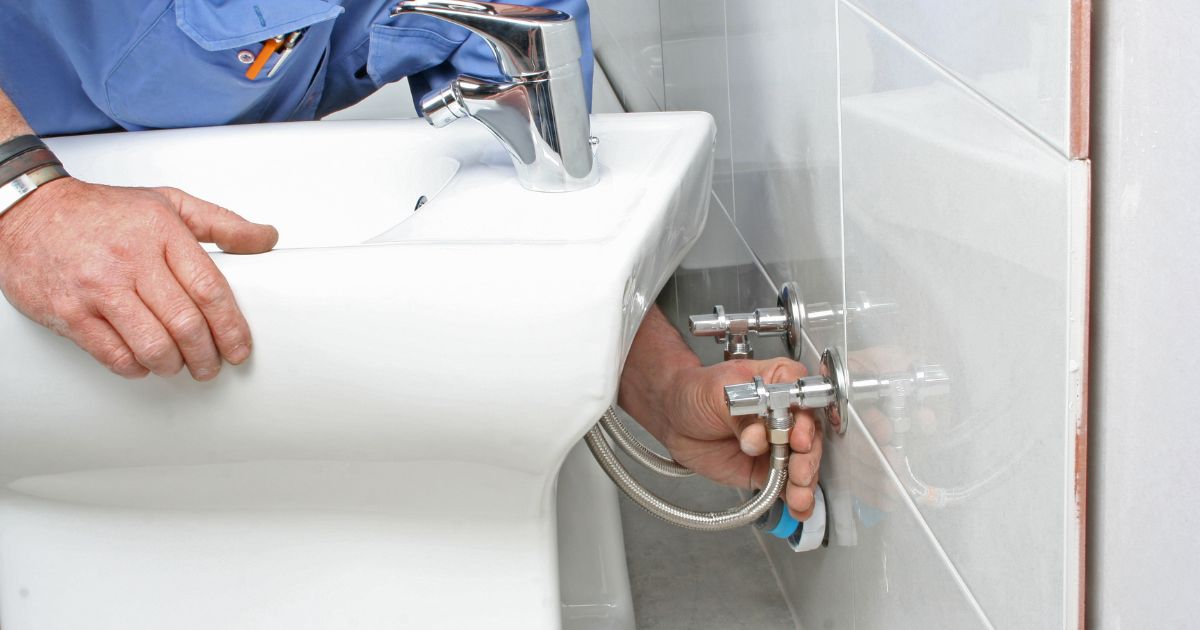
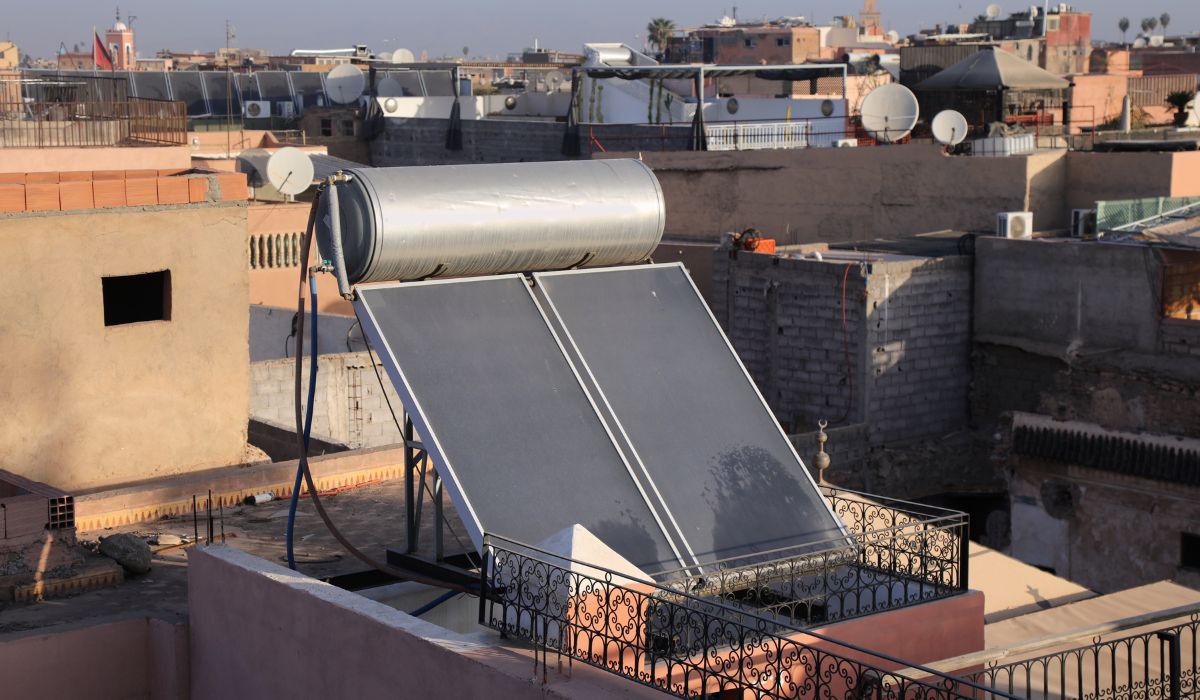
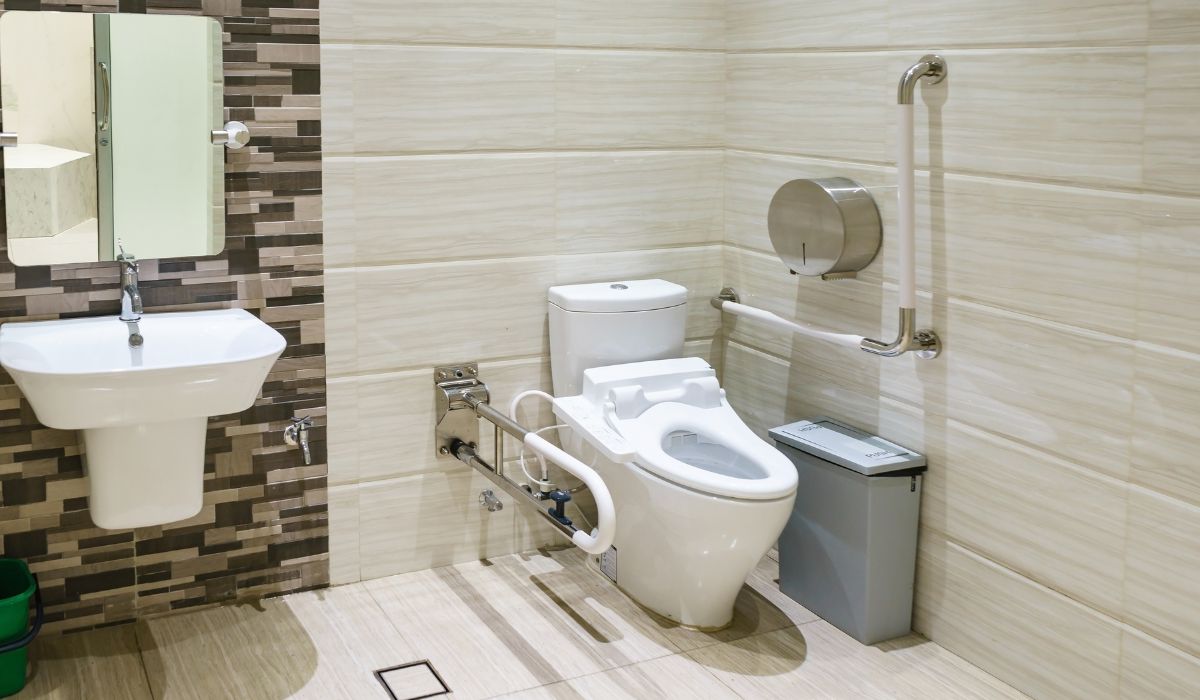
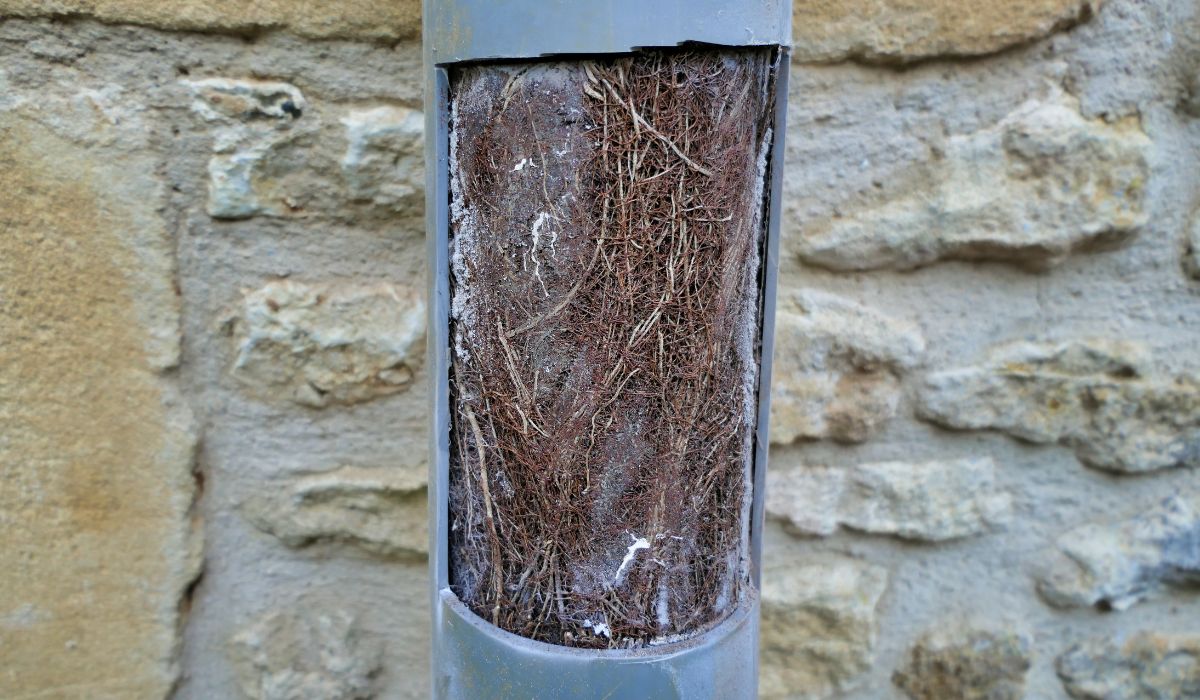
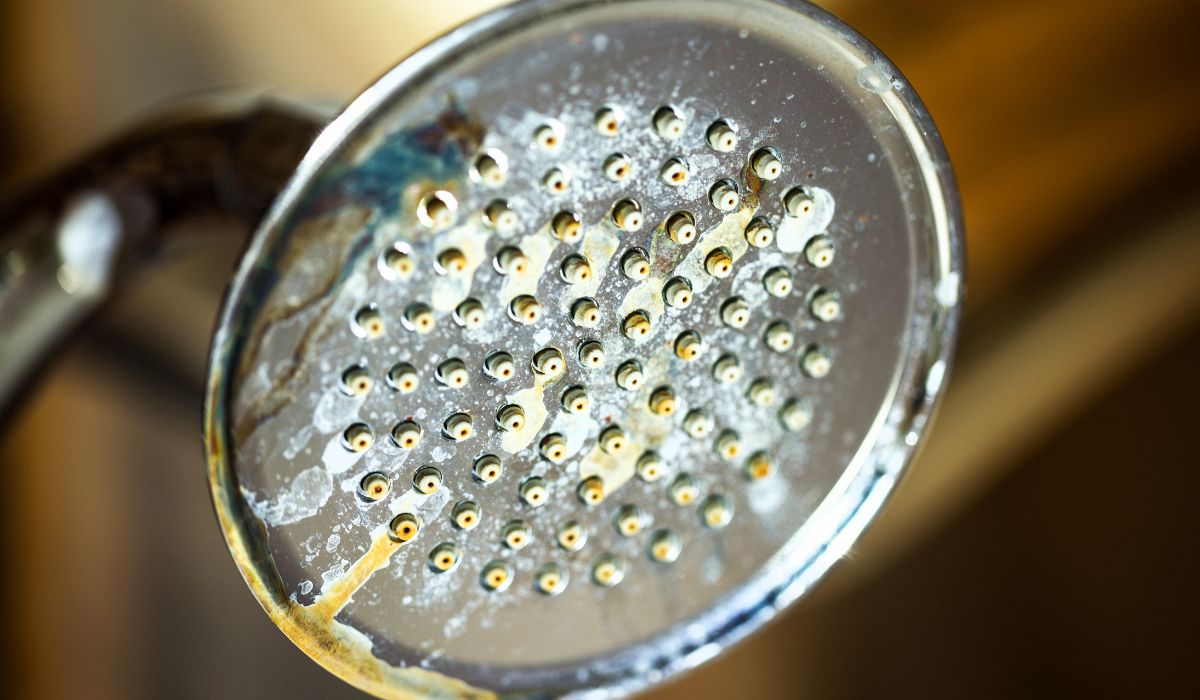
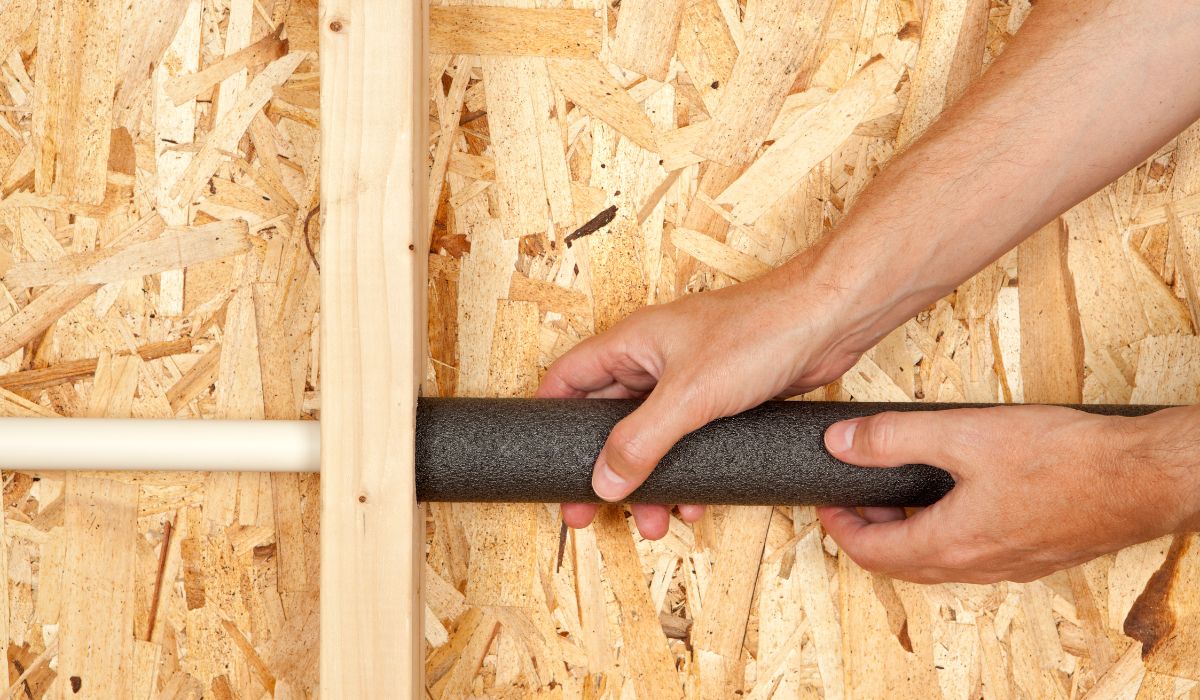
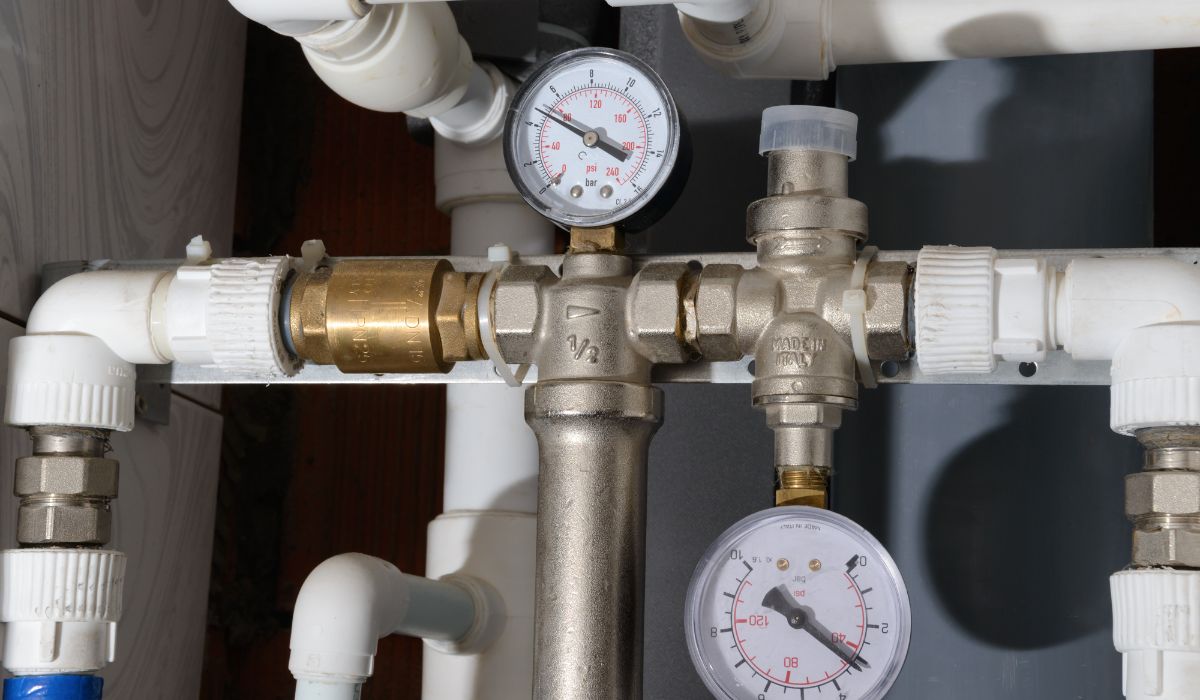
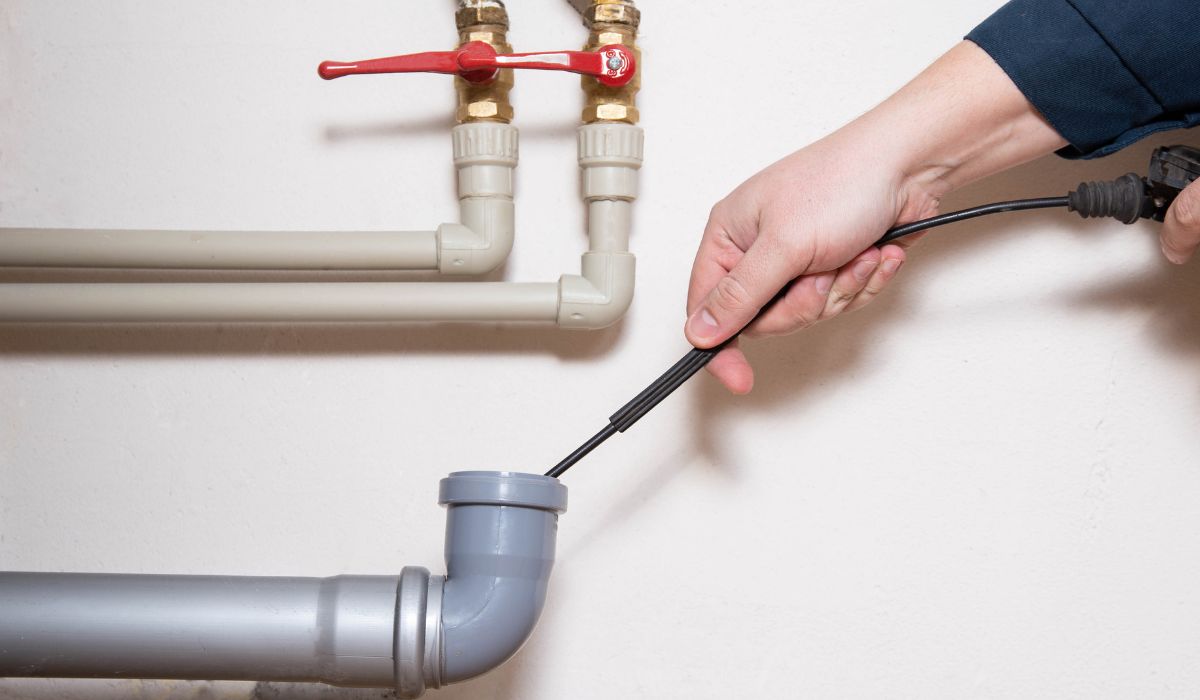
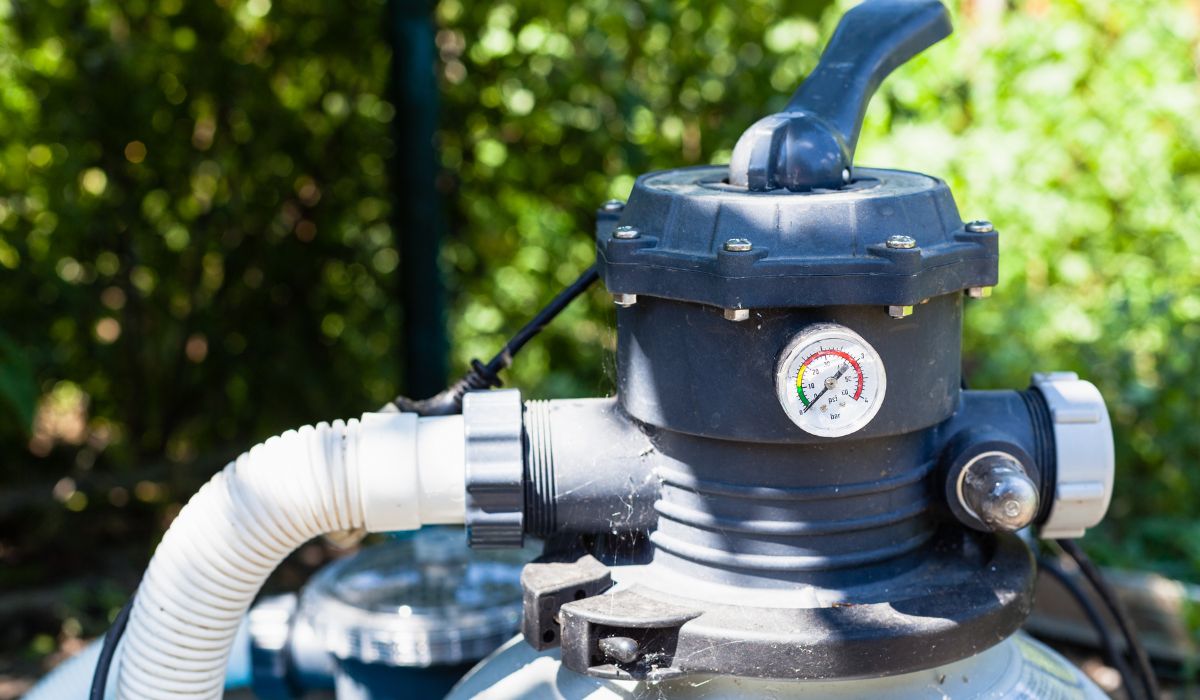
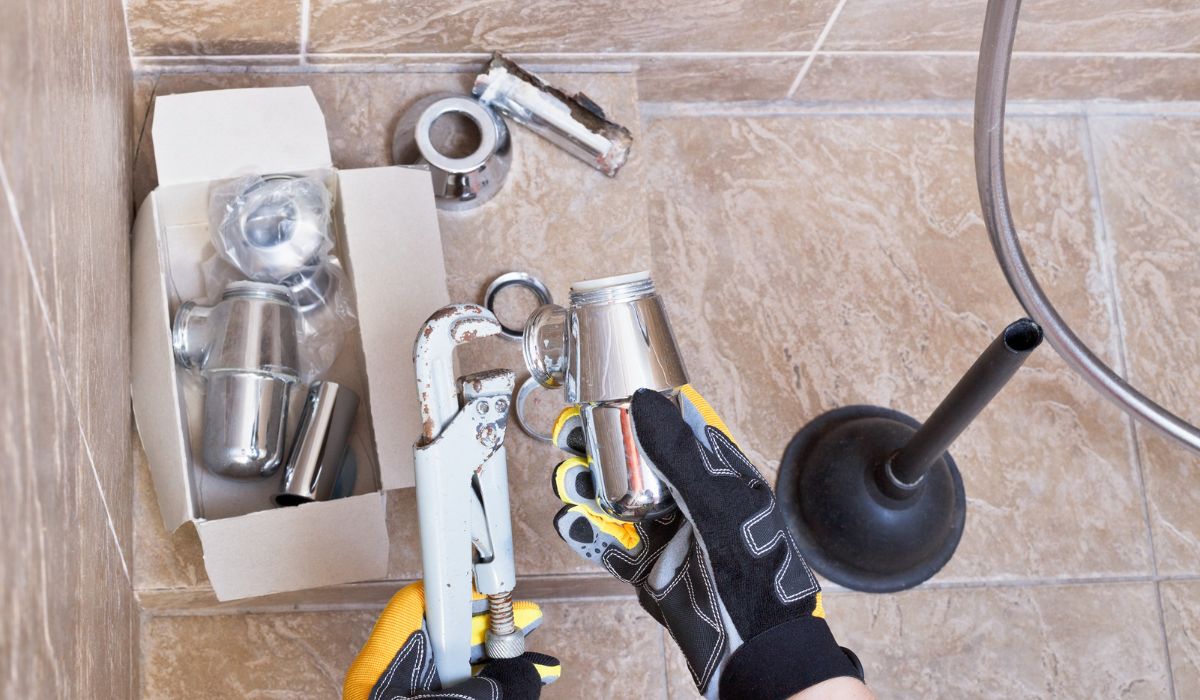
 RSS Feed
RSS Feed